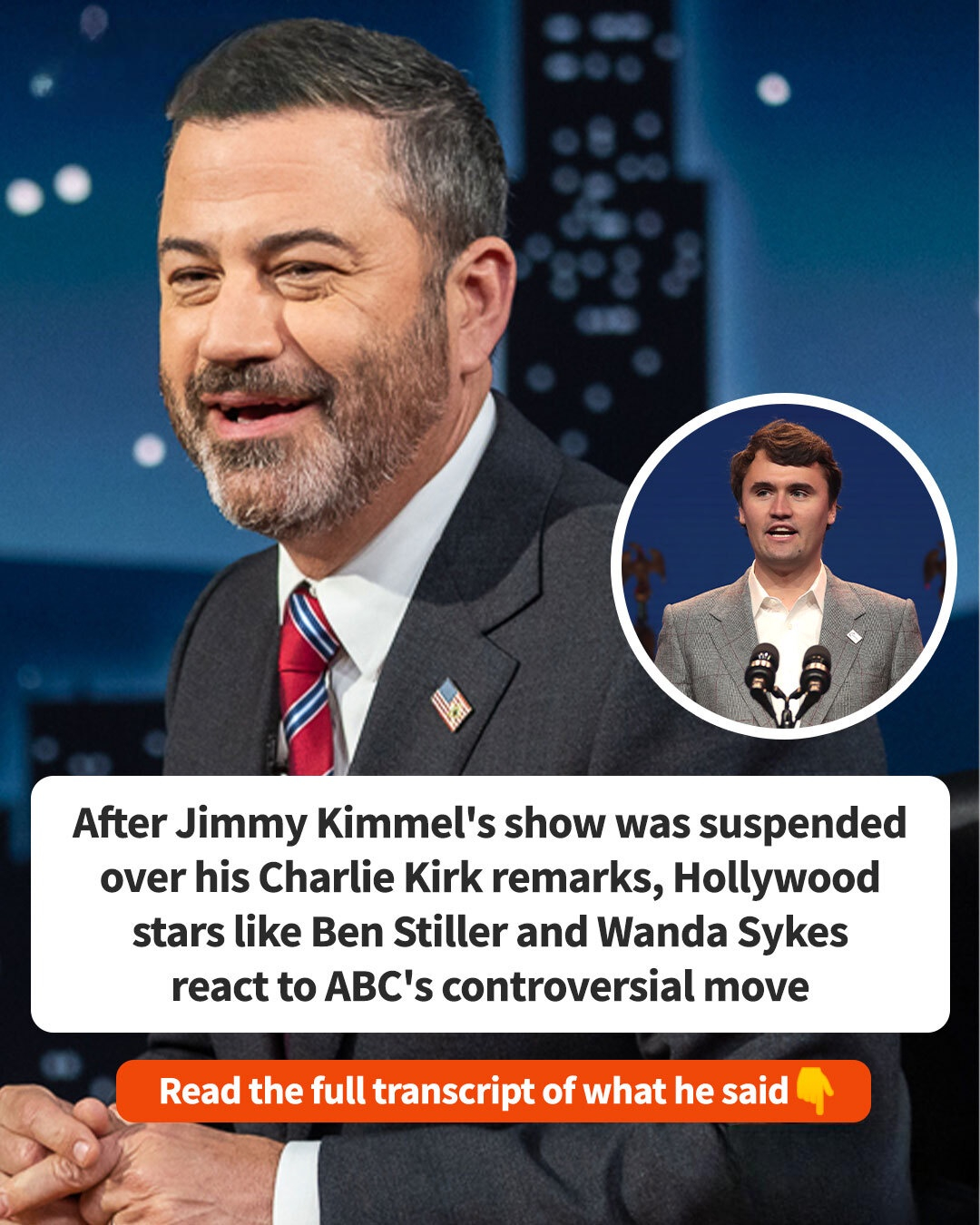Late-night television is no stranger to controversy, but this week the spotlight fell squarely on Jimmy Kimmel. His long-running talk show, Jimmy Kimmel Live!, was abruptly pulled off the air on September 17 after he made remarks about the death of conservative activist Charlie Kirk that the broadcasting network deemed “insensitive.”

Charlie Kirk, just 31 years old, was tragically killed on September 10 during an event at Utah Valley University. Police later identified the suspect as 22-year-old Tyler Robinson, who now faces first-degree homicide charges. Kirk’s sudden and violent death sent shockwaves through both political and cultural circles, with tributes pouring in from friends, supporters, and high-profile figures.
When Kimmel addressed the news during his September 15 broadcast, many expected a somber acknowledgment. Instead, his jokes and commentary about how political figures—particularly Donald Trump—responded to Kirk’s death sparked outrage. The late-night host mocked the way Trump expressed grief, playing clips of the former president speaking to reporters outside the White House. In one viral moment, Trump was asked how he was holding up after losing someone considered a close friend. He responded, “I think very good, and by the way, right there where you see all the trucks, they just started construction of the new ballroom for the White House.”
Kimmel quipped in response, “Yes, he’s at the fourth stage of grief, construction. This is not how an adult grieves the m**rder of someone he called a friend. There’s something wrong with him, there really is.” He also accused Trump supporters of trying to distance themselves from Robinson, the alleged killer, while simultaneously using Kirk’s death to score political points.
These comments quickly drew strong objections from Nexstar Media Group, the broadcaster that manages ABC’s affiliated stations. In a public statement, the company confirmed that Jimmy Kimmel Live! would be taken off the air “for the foreseeable future.” The statement continued: “Mr. Kimmel’s comments about the death of Mr. Kirk are offensive and insensitive at a critical time in our national political discourse, and we do not believe they reflect the spectrum of opinions, views, or values of the local communities in which we are located.”
The decision to suspend the show immediately ignited debate online. Supporters of Kimmel argued that he was exercising free speech and that late-night comedy has always relied on sharp, often uncomfortable political satire. Celebrities like Ben Stiller and Sophia Bush spoke out in defense of the comedian, while many social media users echoed the sentiment that freedom of speech shouldn’t come with conditions. “So, freedom of speech only applies when it’s something they want to hear?” one user asked pointedly.
But critics countered that Kimmel had crossed a line by joking about the death of a young man, no matter the political circumstances. To them, the suspension was not about censorship but about respecting the gravity of a tragedy. The controversy highlights the delicate balance between comedy and sensitivity, especially when emotions are running high in an already polarized political climate.
Kimmel, who has often used his platform to address hot-button issues like gun violence and social justice, ended his September 15 episode with additional criticism of Trump. He brought up reports linking the former president to Jeffrey Epstein, even referencing documents that allegedly bore Trump’s signature. He then questioned the construction of a reported $200 million ballroom project at the White House, suggesting it might be a distraction tactic. “By the time he’s out of office, the White House will have slot machines and a water slide,” Kimmel joked.
While his punchlines may have been in line with the late-night tradition of political satire, the timing and subject matter fueled a backlash powerful enough to remove one of the most established shows in the genre from television. For now, Nexstar has left the door open to reinstating the program, but there is no timeline for its return.
The broader question remains: how far should comedy be allowed to go when it collides with grief, politics, and public outrage? Kimmel’s supporters argue that satire is essential in holding leaders accountable, while detractors believe mocking the death of a public figure is unacceptable. As Jimmy Kimmel Live! remains dark, the debate over free speech, media responsibility, and respect for tragedy continues to rage both on social media and in households across America.





